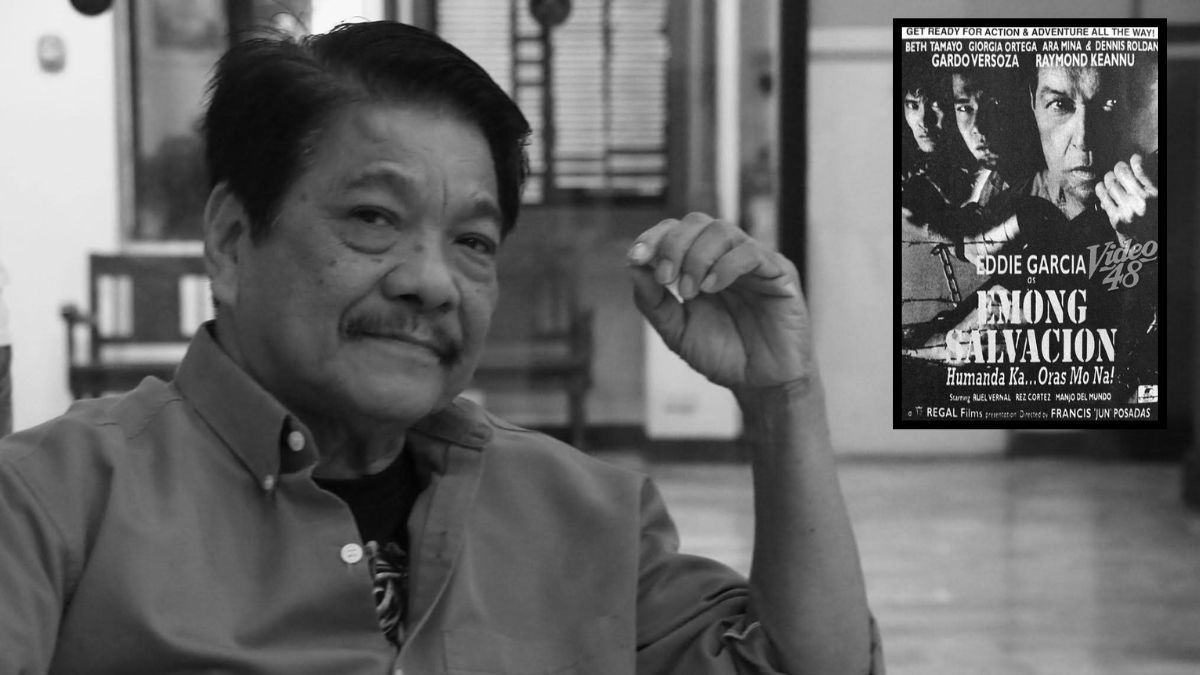Veteran Filipino Director Francis “Jun” Posadas Passes Away at 76

The Philippine film industry mourns the loss of one of its veteran filmmakers, Francis “Jun” Posadas, who passed away on the morning of Tuesday, August 12, 2025. He was 76.
His passing was confirmed by his daughter, Susan Kelly Posadas, in a statement to PEP.ph (Philippine Entertainment Portal). According to her, the respected director collapsed unexpectedly while tending to his small store at around 8:30 AM.
“He was still attending to the store,” Susan shared. “Then suddenly, he just fell.”
She added that the family rushed him to the nearby Our Lady of Pillar Hospital in Imus, Cavite. “The hospital was close, but when we got there, he no longer had a pulse,” she said. “Doctors tried to revive him for about thirty minutes, but it was too late.”
At the time this article was written, Director Posadas’s remains were still at the hospital, and the family had not yet finalized the details of the wake or funeral.
A Legacy in Philippine Cinema
Francis “Jun” Posadas began his career in the 1970s, making his mark in both mainstream and genre filmmaking. Over several decades, he directed a wide range of films, working with some of the most prominent names in Philippine cinema.
Among the actors he collaborated with throughout his long career were Eddie Garcia, Ace Vergel, Maricel Soriano, Robin Padilla, Cesar Montano, Ronnie Ricketts, Ian Veneracion, Alice Dixson, and Diana Zubiri. His partnership with the legendary Eddie Garcia was particularly notable, resulting in numerous memorable films.
Some of the most recognized works between Posadas and Garcia include Emong Salvacion, Ako ang Batas: General Karingal, Enteng Manok: Tari ng Quiapo, Judge Max Asuncion: Hukom Bitay, and Mayor Cesar Climaco. These films were emblematic of the kind of bold and compelling storytelling that Posadas became known for.
Aside from action and drama, Posadas also directed numerous films during the 1980s that played a significant role in shaping trends in local cinema. These movies often tackled mature themes and contributed to the careers of several rising stars during that period. Although these projects sparked varying responses from critics and audiences alike, they were undeniably influential in shaping the cinematic landscape of their time.
Some of the titles that became significant in that era include G.I. Baby, Tag-init, Nagpuputik ang Langit, Akin Ka Ngayong Gabi, Gawin sa Dilim, Nang Maulit ang Minsan, and Apoy. These films served as launchpads for a new generation of actors, including Lampel Cojuangco, Cherrie Madrigal, Amanda Amores, Bobby Benitez, Franco Madrigal, and Lala Montelibano. The late actor George Estregan also gained wide recognition during this period.
A Director with a Distinct Style

What made Posadas stand out in the local film scene was his unflinching directorial style and willingness to explore stories that resonated with both the masses and those looking for depth and grit in storytelling. He had a distinct ability to blend commercial appeal with narrative substance, which helped many of his films succeed at the box office while also contributing to important conversations in Filipino society at the time.
Colleagues and film historians have often cited Posadas’s work as reflective of the changing tides in Philippine cinema, particularly in the ‘70s through the early 2000s, when Filipino filmmakers were experimenting with themes that mirrored the realities of the time.
Even though he slowed down in the later years of his career, Posadas remained a respected figure among peers and younger directors who looked up to his ability to navigate various genres, from action-packed dramas to emotionally driven stories.
Remembering a Quiet yet Influential Figure
Despite his achievements, Posadas remained largely low-profile throughout his life. He preferred to let his work speak for itself rather than seek the spotlight. Industry insiders remember him as humble, focused, and always passionate about his craft.
“He was very quiet, but when he spoke, it was always about the work,” said one former colleague. “You could tell he loved making movies.”
Many actors who worked with him recall his calm demeanor on set and his ability to bring out powerful performances without raising his voice or resorting to theatrics.
The Road Ahead
As the Posadas family grieves, tributes have begun pouring in from colleagues, actors, and fans who were touched by the director’s contributions to Philippine cinema. Online, messages of condolences and stories from those who worked with him are being shared, painting a picture of a man who may have avoided the limelight, but whose work left a lasting impression.
“Direk Jun was a legend,” one filmmaker wrote on social media. “He gave us stories that shaped our industry and mentored actors and crews alike. His legacy will live on.”
The family has yet to announce the official schedule for the wake and interment, but Susan Kelly Posadas assured the public that updates would be shared once arrangements are finalized.
Final Words
Francis “Jun” Posadas may no longer be with us, but his body of work remains a vital part of Philippine cinema. From hard-hitting action films to emotionally resonant dramas, he helped shape decades of local film history. His storytelling, his style, and his dedication to the craft will continue to inspire future generations of filmmakers and moviegoers alike.
As the curtain falls on his life, the spotlight now turns to the legacy he leaves behind—one etched in film, memory, and the hearts of those he worked with and touched through his stories.
Rest in peace, Direk Jun.





